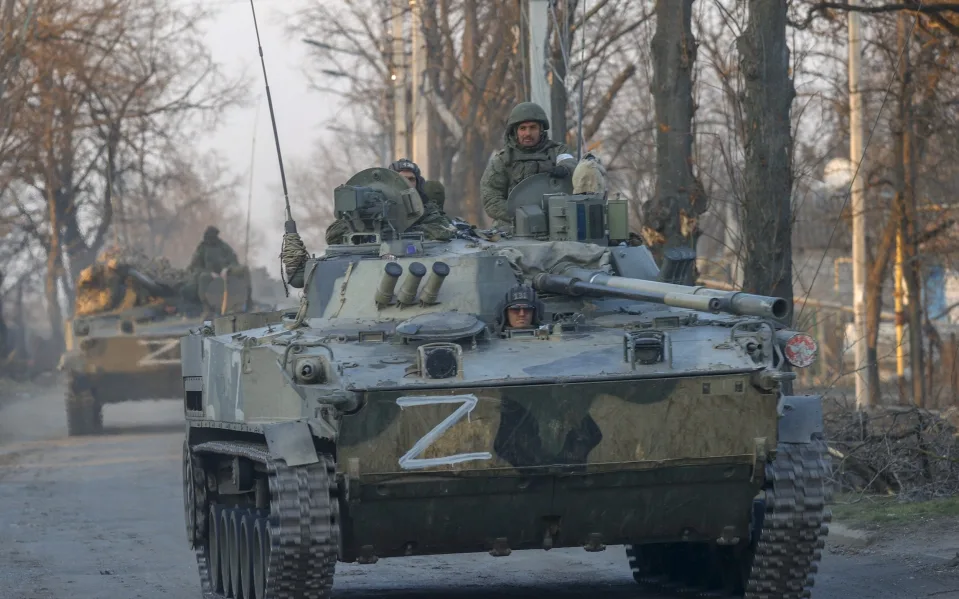
Russian forces have largely stopped deploying as battalion tactical groups because the formations have proved ineffective, the UK’s Ministry of Defence (MoD) has said.
In its latest intelligence update on Tuesday, the ministry said that while “the BTG concept has played a major part in Russian military doctrine for the last ten years” it has proven unsuccessful in the kind of high-intensity fighting seen in Ukraine.
A battalion tactical group (BTG) is a temporary formation bringing together troops and equipment from different units to complete particular operational objectives.
The Russian army is believed to have deployed about 115 battalion tactical groups to Ukraine, with each comprising hundreds of troops supported by tanks and artillery.
According to the MoD, the formations are “integrated with a full range of supporting sub-units, including armour, reconnaissance and (in a departure from usual Western practice) artillery”.
But several weaknesses in the concept have been revealed during the “high intensity, large-scale combat” of the war in Ukraine, the ministry said.
They criticised Russia’s distribution of its artillery, saying a lack of concentrated firepower has become a hindrance to the army.
“Decentralised distribution of artillery has not allowed Russia to fully leverage its advantage in numbers of guns; and few BTG commanders have been empowered to flexibly exploit opportunities in the way the BTG model was designed to promote,” the MoD said.
The MoD also singled out the “relatively small allocation of combat infantry” in the system, which “has often proved insufficient”.
The tactical units have been described as “one of the most important determinants of victory” by experts.
“Only these units, in cooperation with other branches of arms and other military services, can perform the full spectrum of defensive and offensive tasks,” the Royal United Services Institute said.
Ukrainian forces have continued to make slow advances on the battlefield in the eastern Luhansk region, pushing toward Russian defense lines set up between two key cities, Governor Serhiy Haidai said.
But the onset of winter was compounding a “difficult” military situation, he added.
The prospect of any peace remains remote. The Kremlin reaffirmed on Tuesday that negotiations could only be possible if Ukraine meets Russian demands. Kremlin spokesman Dmitry Peskov told reporters that “it’s impossible to hold any talks now because the Ukrainian side strongly rejects them.”
He noted that “political will and readiness to discuss the Russian demands” are needed to conduct negotiations.”
Russia has demanded that Ukraine recognise Crimea as part of Russia and acknowledge other Russian gains. It also has repeated its earlier demands for “demilitarisation” and “denazification,” albeit with less vigour than in the past.






















